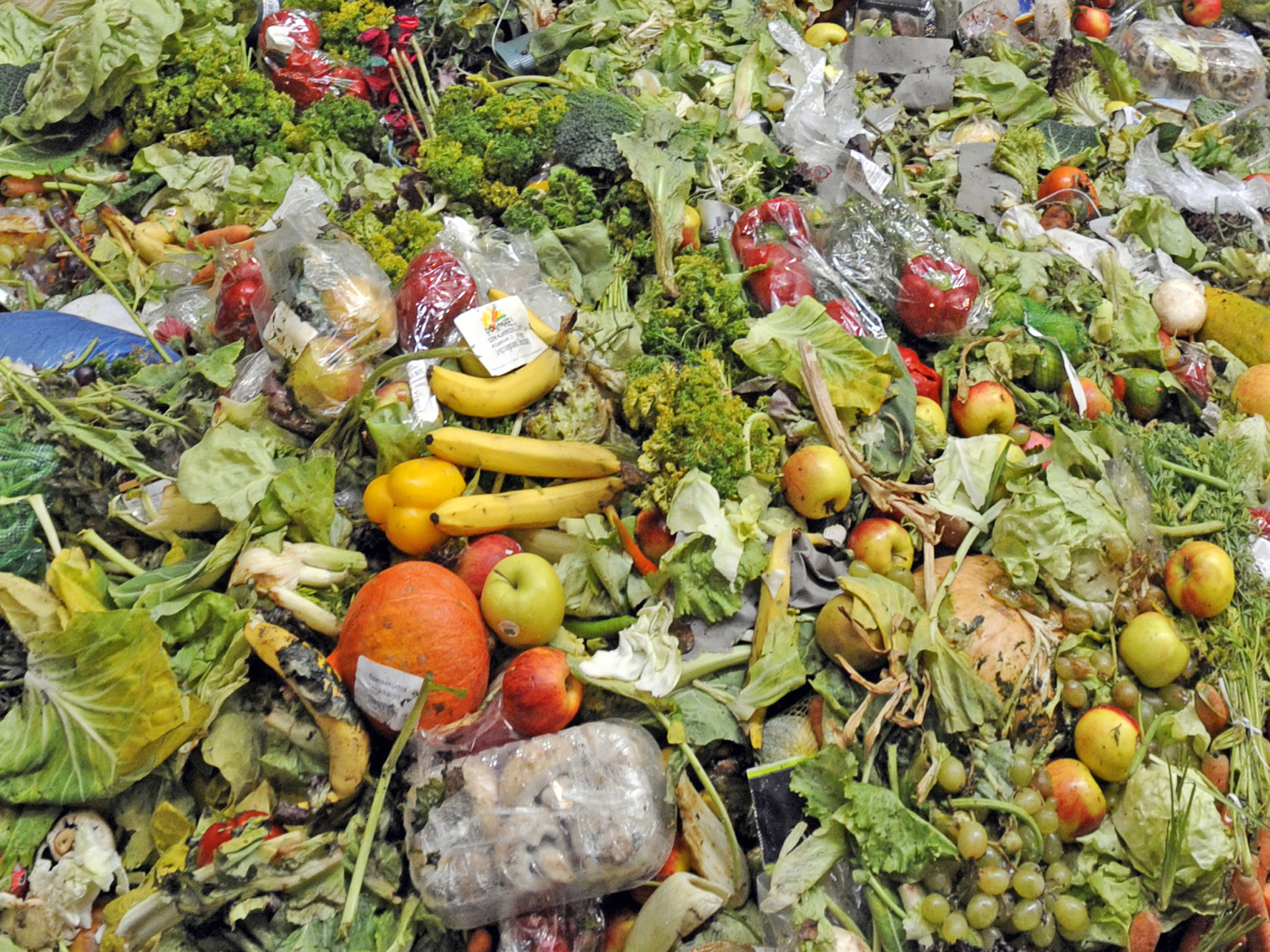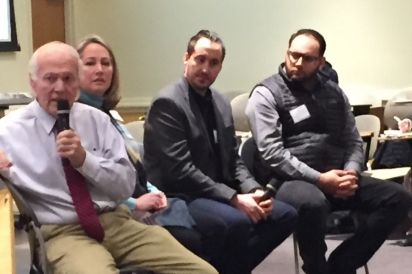Spread the Surplus: Getting Food to Hungry People
Policy makers, restaurateurs and students explore issues of food waste and feeding the hungry
On Friday, December 16, 2016, at a Johnson & Wales University-sponsored forum, “Spread the Surplus: Getting Wasted Food to Hungry People,” policy makers, entrepreneurs and business owners discussed opportunities to reduce waste and deliver food to those in need.
“I don’t use the word ‘trash’; I say ‘waste,’” said Karen Franczyk, Green Mission coordinator for the North Atlantic region, Whole Foods Market, which includes 40 stores, three of them in Rhode Island. “Waste is what we’re done with … it could have value to someone else.”
Whole Foods follows reduce/reuse/recycle guidelines and looks at the entire system—from purchasing to donating, and strives for zero waste. In affiliating with Food Donation Connection, Whole Foods tracks donations by store and trains employees on donations.
The North Atlantic region “donates under a ton [of food] per week per store, on average,” said Franczyk, “and works with 100 agencies among 40 stores.”
Derek Wagner, owner of Nick’s on Broadway in Providence, called ending hunger a “very audacious goal.” Wagner cited data from an August 2012 National Resources Defense Council report, “Wasted: How America is Losing Up to 40% of Its Food from Farm to Fork to Landfill.” Getting food from the farm to our fork consumes 10% of energy in the United States, yet 40% of food goes uneaten. Reducing food losses by just 15% would feed 25 million people.
Wagner urged the federal government to study the food system and set national goals; businesses to streamline their operations, reduce food waste and save money; and consumers to shop wisely, buy edible yet cosmetically unattractive produce, cook only the amount of necessary food and consume leftovers.
Wagner’s advice to business owners/chefs: Controlling food waste is good business. “I can’t make a positive difference if I can’t keep my doors open.” Get informed about the issue, look internally at your practices, look externally at what others are doing, and lead with action. Change menus to include local products—what’s in abundance and not cosmetically perfect—and serve smaller portions. While liability issues make restaurant donations difficult, organizations like Chefs’ Collaborative, where Wagner is a board member, and the James Beard Foundation, feed those in need.
We Share Hope, a nonprofit organization in Warren, handles 85 to 100 pallets of food each week, said James MacDougall, Sr., president/co-founder. With donations from JWU, Brown University and corporations, including CVS and Ocean State Job Lot, We Share Hope, featured in the spring 2016 edition of Edible Rhody, gets foodstuffs to people in need, including those who are merely one unexpected car repair bill away from being in crisis.
We build a community; people donate their time and get food. This food is life-changing, said Cristina McKibbin, We Share Hope’s treasurer.
Other speakers included Chef Jake Rojas, of Tallulah’s Taqueria and the soon-to-open Durk’s Bar-B-Q, both in Providence and seasonally, Tallulah’s Taqueria in Jamestown; Sue AnderBois, director of food strategy for the State of Rhode Island; Bridget Sweet, executive director of food safety, JWU; and Ernest Julian, Ph.D., Director of Office of Food Protection, Rhode Island Department of Health.
Nancy Kirsch is a freelance writer in Providence who is working diligently to reduce her food waste. Contact her at writernancy@gmail.com.





